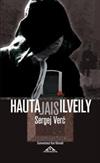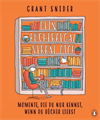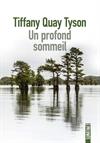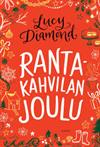
The Plot Against America
1 journaler for this copy...
An alternate version of the 1940s by a very impressive author. As long as this isn't as cynical as Heller's Closing Time, I think I will enjoy it very much. I think this is a bit of a score, the dust jacket is slightly torn but it is an American first edition. $17.50 from the Evil Bookshop.
What if Charles Lindbergh, crack aviator and friend of the Nazis, had been elected President of the USA in 1940, as some people might have wished for (and as he might conceivably have achieved if he had followed the strategy he does in this novel)?
The answer Roth suggests in this memoir of a scary period in a young boy's life (but with a mature writer's voice) is that America's population might easily have receded into the same kind of demotic anti-semitism that characterised Eastern Europe for several centuries, even without any particularly active persecution on the part of the government. Far too believable, given that America got many of its early 20th century immigrants, Jews and Gentiles both, from that corner of the world. (The factual history of the invention of white superiority over black Americans in Virginia and the Carolinas in the 1700s doesn't rate much of a mention here, but it's worth pointing out that a similar thing was happening in Europe vis-a-vis Jews and Christians centuries earlier.)
The beauty of the novel is in the detail of the experience of a little boy in his comfortable working-class Jewish neighbourhood where his mother is on the P&C of the local public school, the nuns running the orphanage at the end of the street with their truck garden are a dark mystery, and his flamboyant young aunt offers a glimpse of the glamorous world of money and politics when she hooks up with a rabbi who in turn hooks up with the Lindbergh administration as the chief of the American Judenrat.
But on the other hand the parents' insular fear (which the older brother, exposed to homely rural Kentucky, dismisses with contempt as the fears of "ghetto Jews" and the more articulate Rabbi Bengelsdorf describes as "keeping faith with the certainty of Jewish travail" -- an accusation taken verbatim from Roth's critics) and more tellingly the way in which the events of the novel prove those fears accurate opens the author to the criticism that he hates rural America.
Possible minor spoilers below, so I've set the font colour to white. Select the text to read it:
The story is chilling, but not quite chilling enough for me. The US Constitution and FDR are always present in the background as warm fuzzy guarantees, and the author manages somehow to return the 20th century to regularly scheduled programming late in the Second World War, after having allowed Germany to recover from its Eastern Front setbacks in the winter of 1942-1943 and further devastate the Soviet Union.
This alternative history of the war seems entirely unrealistic to me. After having messed with history so much, the delayed attack on Pearl Harbour (Roth moves it from December 1941 to December 1942) and consequent entry of the USA into the war just isn't enough to wind back the war in Europe to a scenario comparable to the one that's actually in the history books.
As far as German military resources and manpower were concerned, it was those devastating losses against the Soviet Union in late 1942 which determined the final result of the war. Either Russia won the upper hand at that point, or it didn't. Historically, American (and British) aid to the USSR (and Britain) did have some effect in the crucial period during the sieges of Leningrad, Moscow and Stalingrad, before the winter of 1942-1943, but Roth has America's 'non-intervention' continue right up to 1943. Since the western front was not reopened until D-day, June 1944, a Germany which had already secured control of European Russia up to the Urals by that date would have been well-positioned to defend itself in the West. Roth conveniently neglects to relate events beyond early 1943 in any detail, so we are left to speculate about such crucial events as the Normandy invasion.
As a what-if concerning American society, this is compelling and scary. But its neat restoration of the rule of law after a few days of overtly fascist paranoia in the White House is not believable -- after all the law is honoured mostly in the breach in today's Washington, much as it was in Berlin in 1933.
In short, this book tries to explore a nightmare situation but ends with an "oh, thank goodness it was only a dream" feel to it which robs it of some credibility. In my opinion the US of today is scarier than Roth's US under Lindbergh, and has the potential at any time to go every bit as scary -- and permanently -- as his moment of insanity under Burton K. Wheeler.
Some of the reviewers on Amazon seem to think that this is more like an attempt to educate mainstream Americans about how life under the Nazis might have felt for Jewish Germans, than a story mostly about America and what might become of that great country. My take is different. This is a wake-up call, pointing out how easily the wrong leadership can turn a democratic country with its supposed guarantees of freedom into a fascist one where the right of recourse to the law of every citizen is an ironic joke. My regret is that it doesn't take the threat seriously enough.
There's a very interesting and highly critical review over at the American Conservative magazine. My criticisms of the novel are largely the same as the ones in that review, though I come from a diametrically opposed worldview. Bill Kauffman of the American Conservative, like me, thinks that the present Bush regime is on the road to totalitarianism. But he thinks very poorly of Roth's historical understanding:
Unfortunately for Kauffman, Roth's story is not a mere simple inversion; the contradictions are internal -- the complex patriotic libertarian movement(s) in the USA, at the same time as espousing peace, civil liberties and opposing conscription, have always flirted with fascism. The "socialist warmonger" and conscripter FDR, who threw hundreds of thousands of Japanese Americans into concentration camps (while inflicting no such cruelty on the far more numerous German Americans) was also a firm believer in democracy, while Lindbergh was never a pacifist and blamed the ill-advised pacifism of the French public for the failure of that country's defences in 1939.
But Lindbergh really was a conservative libertarian and he really did admire the great Nazi social experiment. He was not exactly an anti-Semite and harshly criticised German treatment of Jewish citizens, but he was a racialist who thought and wrote extensively on racial "purity" and America's European heredity, which he thought should not be diluted.
Here are another couple of intersting, lengthy reviews of the novel by John Reilly and Daniel Handler (aka Lemony Snicket).
My favourite line:
"Son, don't ask me about the Democrats. I'm angry enough as it is."
The answer Roth suggests in this memoir of a scary period in a young boy's life (but with a mature writer's voice) is that America's population might easily have receded into the same kind of demotic anti-semitism that characterised Eastern Europe for several centuries, even without any particularly active persecution on the part of the government. Far too believable, given that America got many of its early 20th century immigrants, Jews and Gentiles both, from that corner of the world. (The factual history of the invention of white superiority over black Americans in Virginia and the Carolinas in the 1700s doesn't rate much of a mention here, but it's worth pointing out that a similar thing was happening in Europe vis-a-vis Jews and Christians centuries earlier.)
The beauty of the novel is in the detail of the experience of a little boy in his comfortable working-class Jewish neighbourhood where his mother is on the P&C of the local public school, the nuns running the orphanage at the end of the street with their truck garden are a dark mystery, and his flamboyant young aunt offers a glimpse of the glamorous world of money and politics when she hooks up with a rabbi who in turn hooks up with the Lindbergh administration as the chief of the American Judenrat.
But on the other hand the parents' insular fear (which the older brother, exposed to homely rural Kentucky, dismisses with contempt as the fears of "ghetto Jews" and the more articulate Rabbi Bengelsdorf describes as "keeping faith with the certainty of Jewish travail" -- an accusation taken verbatim from Roth's critics) and more tellingly the way in which the events of the novel prove those fears accurate opens the author to the criticism that he hates rural America.
Possible minor spoilers below, so I've set the font colour to white. Select the text to read it:
The story is chilling, but not quite chilling enough for me. The US Constitution and FDR are always present in the background as warm fuzzy guarantees, and the author manages somehow to return the 20th century to regularly scheduled programming late in the Second World War, after having allowed Germany to recover from its Eastern Front setbacks in the winter of 1942-1943 and further devastate the Soviet Union.
This alternative history of the war seems entirely unrealistic to me. After having messed with history so much, the delayed attack on Pearl Harbour (Roth moves it from December 1941 to December 1942) and consequent entry of the USA into the war just isn't enough to wind back the war in Europe to a scenario comparable to the one that's actually in the history books.
As far as German military resources and manpower were concerned, it was those devastating losses against the Soviet Union in late 1942 which determined the final result of the war. Either Russia won the upper hand at that point, or it didn't. Historically, American (and British) aid to the USSR (and Britain) did have some effect in the crucial period during the sieges of Leningrad, Moscow and Stalingrad, before the winter of 1942-1943, but Roth has America's 'non-intervention' continue right up to 1943. Since the western front was not reopened until D-day, June 1944, a Germany which had already secured control of European Russia up to the Urals by that date would have been well-positioned to defend itself in the West. Roth conveniently neglects to relate events beyond early 1943 in any detail, so we are left to speculate about such crucial events as the Normandy invasion.
As a what-if concerning American society, this is compelling and scary. But its neat restoration of the rule of law after a few days of overtly fascist paranoia in the White House is not believable -- after all the law is honoured mostly in the breach in today's Washington, much as it was in Berlin in 1933.
In short, this book tries to explore a nightmare situation but ends with an "oh, thank goodness it was only a dream" feel to it which robs it of some credibility. In my opinion the US of today is scarier than Roth's US under Lindbergh, and has the potential at any time to go every bit as scary -- and permanently -- as his moment of insanity under Burton K. Wheeler.
Some of the reviewers on Amazon seem to think that this is more like an attempt to educate mainstream Americans about how life under the Nazis might have felt for Jewish Germans, than a story mostly about America and what might become of that great country. My take is different. This is a wake-up call, pointing out how easily the wrong leadership can turn a democratic country with its supposed guarantees of freedom into a fascist one where the right of recourse to the law of every citizen is an ironic joke. My regret is that it doesn't take the threat seriously enough.
There's a very interesting and highly critical review over at the American Conservative magazine. My criticisms of the novel are largely the same as the ones in that review, though I come from a diametrically opposed worldview. Bill Kauffman of the American Conservative, like me, thinks that the present Bush regime is on the road to totalitarianism. But he thinks very poorly of Roth's historical understanding:
"The antiwar movement of 1940-41 was essentially libertarian: in favor of peace and civil liberties, opposed to conscription. Rather than accept this complexity, Roth opts for inversion: his isolationists are the party of repression and conscription, while his warhawks are the party of liberty. War is Peace. Freedom is Slavery."
Unfortunately for Kauffman, Roth's story is not a mere simple inversion; the contradictions are internal -- the complex patriotic libertarian movement(s) in the USA, at the same time as espousing peace, civil liberties and opposing conscription, have always flirted with fascism. The "socialist warmonger" and conscripter FDR, who threw hundreds of thousands of Japanese Americans into concentration camps (while inflicting no such cruelty on the far more numerous German Americans) was also a firm believer in democracy, while Lindbergh was never a pacifist and blamed the ill-advised pacifism of the French public for the failure of that country's defences in 1939.
But Lindbergh really was a conservative libertarian and he really did admire the great Nazi social experiment. He was not exactly an anti-Semite and harshly criticised German treatment of Jewish citizens, but he was a racialist who thought and wrote extensively on racial "purity" and America's European heredity, which he thought should not be diluted.
Here are another couple of intersting, lengthy reviews of the novel by John Reilly and Daniel Handler (aka Lemony Snicket).
My favourite line:
"Son, don't ask me about the Democrats. I'm angry enough as it is."
Offered as a bookring to BCAUS and 1001mustreadbooks members. Participants will be listed below.
KLL, Perth
puppymummy, Melbourne
DrCris, Melbourne
GateGypsy, Whitehorse, Yukon Territory
xoddam, Sydney
KLL, Perth
puppymummy, Melbourne
DrCris, Melbourne
GateGypsy, Whitehorse, Yukon Territory
xoddam, Sydney










